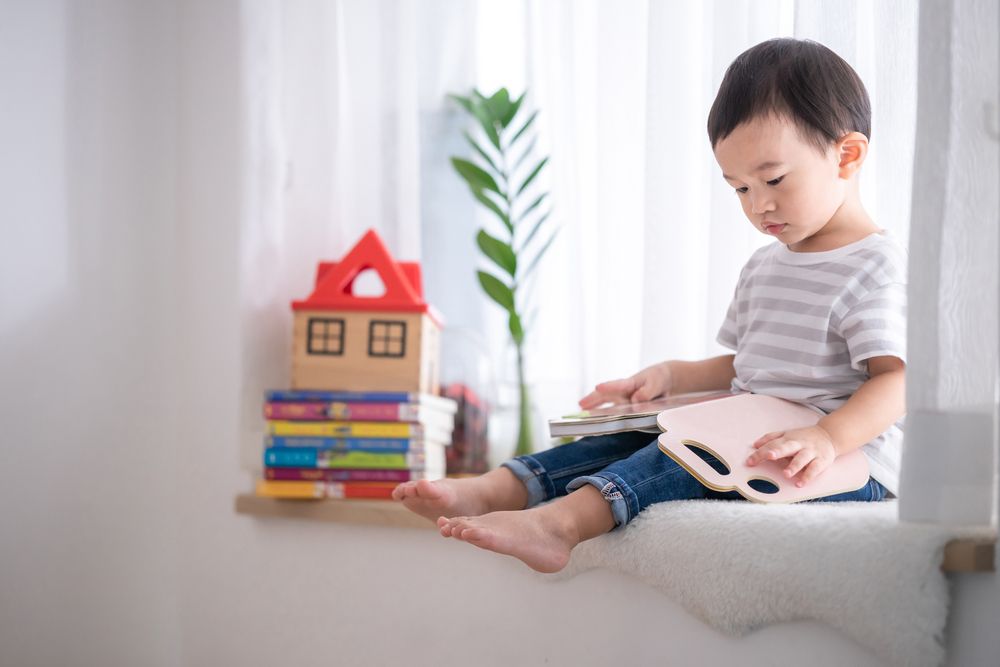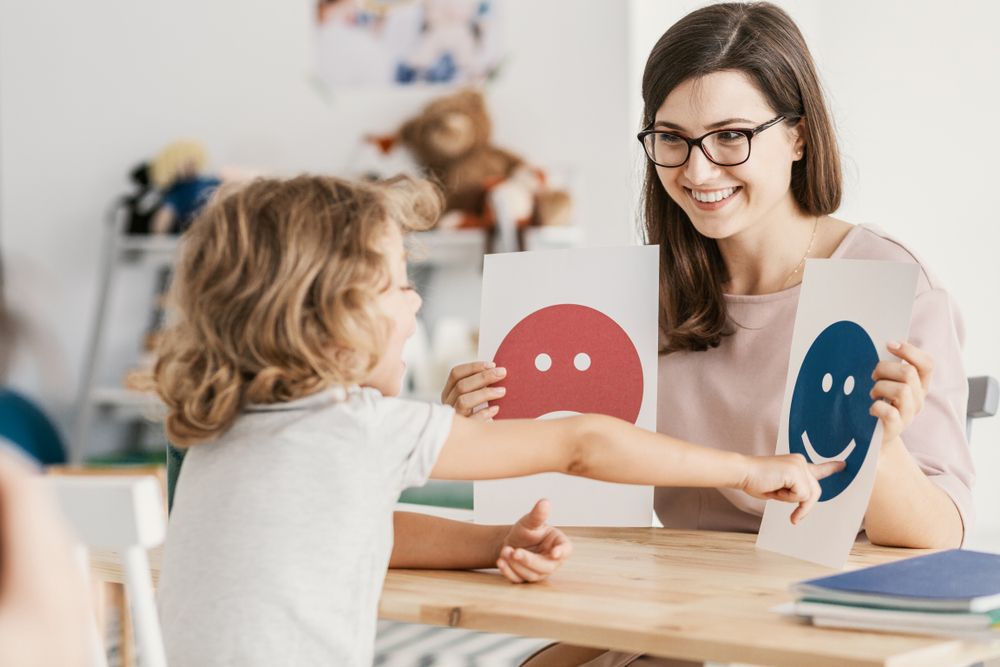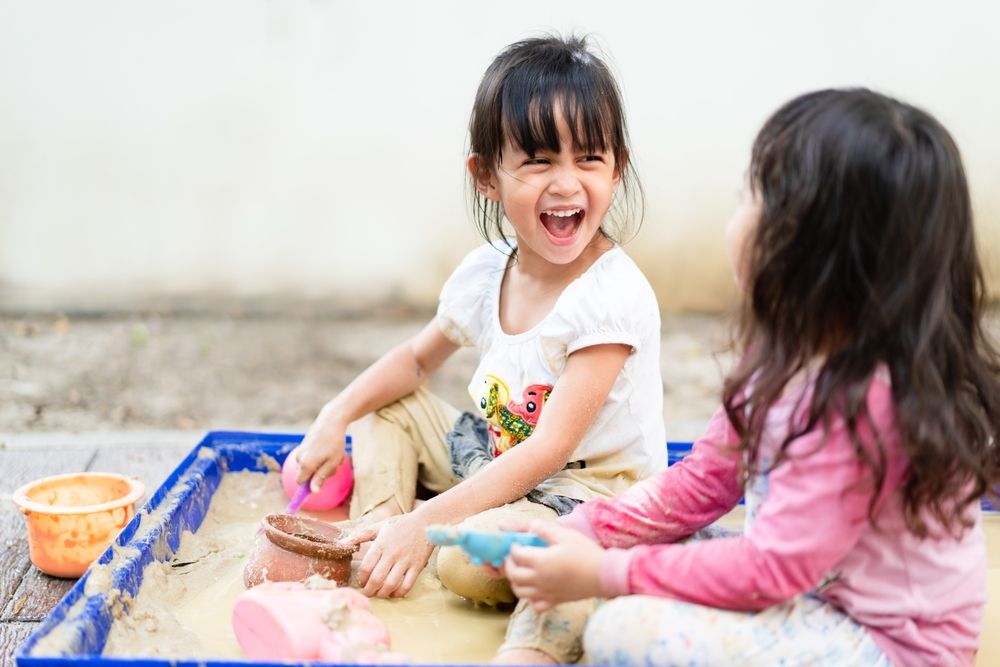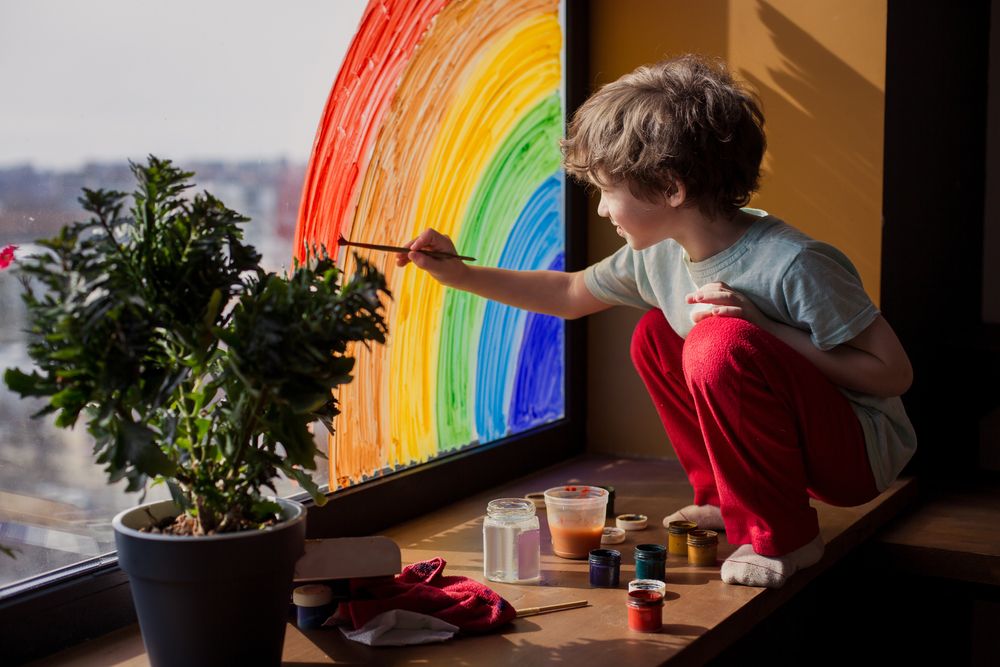 Play is a fundamental aspect of childhood that goes beyond mere entertainment. It is a powerful tool that enhances child development in numerous ways. From cognitive growth to social skills, playtime offers children a wide range of benefits. This article will delve into the six key advantages of play in child development. Let’s explore how the power of play can shape a child’s growth and pave the way for a brighter future.
Play is a fundamental aspect of childhood that goes beyond mere entertainment. It is a powerful tool that enhances child development in numerous ways. From cognitive growth to social skills, playtime offers children a wide range of benefits. This article will delve into the six key advantages of play in child development. Let’s explore how the power of play can shape a child’s growth and pave the way for a brighter future.
Playtime has a profound impact on various aspects of a child’s development. Let’s take a closer look at the six primary benefits it offers:
Contents
- 1 1. Cognitive Development: Expanding Young Minds
- 2 2. Language Acquisition: Communicating and Connecting
- 3 3. Emotional Regulation: Nurturing Self-Control
- 4 4. Social Skills: Building Relationships and Cooperation
- 5 5. Physical Development: Active Bodies, Healthy Lives
- 6 6. Imagination and Creativity: Expanding Horizons
- 6.0.1 How does play benefit a child's cognitive development?
- 6.0.2 Can play promote social skills in children?
- 6.0.3 What role does playtime play in emotional regulation?
- 6.0.4 How does play contribute to physical development?
- 6.0.5 Can play enhance a child's creativity and imagination?
- 6.0.6 Is playtime essential for a child's overall development?
1. Cognitive Development: Expanding Young Minds
 Play is a cognitive stimulant, fostering brain development and enhancing critical thinking skills. Whether solving puzzles, building with blocks, or engaging in imaginative play, children exercise their minds and develop problem-solving abilities. They learn cause-and-effect relationships, spatial awareness, and logical reasoning by exploring and experimenting.
Play is a cognitive stimulant, fostering brain development and enhancing critical thinking skills. Whether solving puzzles, building with blocks, or engaging in imaginative play, children exercise their minds and develop problem-solving abilities. They learn cause-and-effect relationships, spatial awareness, and logical reasoning by exploring and experimenting.
2. Language Acquisition: Communicating and Connecting
 Play provides an ideal platform for language development in children. Children actively communicate and interact, whether playing with peers or engaging in imaginative play with toys. They practice vocabulary, sentence formation, and expressive language skills through conversations, storytelling, and role-playing. Such playful interactions boost their linguistic abilities and lay a solid foundation for effective communication in the future.
Play provides an ideal platform for language development in children. Children actively communicate and interact, whether playing with peers or engaging in imaginative play with toys. They practice vocabulary, sentence formation, and expressive language skills through conversations, storytelling, and role-playing. Such playful interactions boost their linguistic abilities and lay a solid foundation for effective communication in the future.
3. Emotional Regulation: Nurturing Self-Control
 Playtime plays a pivotal role in emotional regulation and self-control. As children engage in different types of play, they encounter various emotions and learn how to manage them effectively. From negotiating conflicts during group play to expressing emotions through creative outlets, such as drawing or painting, play helps children develop resilience, empathy, and emotional intelligence.
Playtime plays a pivotal role in emotional regulation and self-control. As children engage in different types of play, they encounter various emotions and learn how to manage them effectively. From negotiating conflicts during group play to expressing emotions through creative outlets, such as drawing or painting, play helps children develop resilience, empathy, and emotional intelligence.
4. Social Skills: Building Relationships and Cooperation
 Play is a natural arena for children to learn and practice social skills. It offers opportunities for cooperation, negotiation, sharing, and turn-taking. Children develop crucial social competencies, Whether in team sports, participating in board games, or simply engaging in unstructured play at the playground. Play teaches them to navigate social situations, build friendships, and collaborate effectively.
Play is a natural arena for children to learn and practice social skills. It offers opportunities for cooperation, negotiation, sharing, and turn-taking. Children develop crucial social competencies, Whether in team sports, participating in board games, or simply engaging in unstructured play at the playground. Play teaches them to navigate social situations, build friendships, and collaborate effectively.
5. Physical Development: Active Bodies, Healthy Lives
 Physical play is essential for children’s overall development and well-being. Active play, such as running, jumping, climbing, and playing sports, contributes to developing gross motor skills, coordination, and strength. Fine motor skills are also honed through activities like drawing, playing with blocks, and manipulating small objects. Regular physical play not only promotes a healthy lifestyle but also aids in the development of strong bones, muscles, and cardiovascular fitness.
Physical play is essential for children’s overall development and well-being. Active play, such as running, jumping, climbing, and playing sports, contributes to developing gross motor skills, coordination, and strength. Fine motor skills are also honed through activities like drawing, playing with blocks, and manipulating small objects. Regular physical play not only promotes a healthy lifestyle but also aids in the development of strong bones, muscles, and cardiovascular fitness.
6. Imagination and Creativity: Expanding Horizons
 Play nurtures children’s imagination and creativity, allowing them to explore limitless possibilities. Children unleash their creativity and think outside the box, whether engaging in pretend play, inventing stories, or artistic activities. Imaginative play fosters problem-solving skills, abstract thinking, and innovation, which are crucial for success in various aspects of life, including academics and professional pursuits.
Play nurtures children’s imagination and creativity, allowing them to explore limitless possibilities. Children unleash their creativity and think outside the box, whether engaging in pretend play, inventing stories, or artistic activities. Imaginative play fosters problem-solving skills, abstract thinking, and innovation, which are crucial for success in various aspects of life, including academics and professional pursuits.
Frequently Asked Questions (FAQs)
Here are some commonly asked questions about the power of play and their corresponding answers:
Play stimulates cognitive development by encouraging problem-solving, critical thinking, and logical reasoning. It helps children learn cause-and-effect relationships, spatial awareness, and develop cognitive skills necessary for academic success.
Yes, play is a natural platform for children to develop social skills. Through play, children learn cooperation, negotiation, sharing, and turn-taking. It helps them build friendships, understand social dynamics, and develop essential social competencies.
Playtime plays a crucial role in emotional regulation, allowing children to explore and manage their emotions. By engaging in different types of play, children learn resilience and empathy and develop emotional intelligence, enabling them to regulate their emotions effectively.
Play, particularly physical play, promotes physical development in children. Active play, such as running, jumping, and playing sports, develops gross motor skills, coordination, and strength. Fine motor skills are honed through activities like drawing and manipulating small objects.
Absolutely! Play fosters imagination and creativity by encouraging children to explore different scenarios, play pretend, and think outside the box. It enhances problem-solving skills, abstract thinking, and innovation, which are valuable traits for success in various areas of life.
Yes, playtime is crucial for a child’s overall development. It offers numerous benefits, including cognitive growth, language acquisition, emotional regulation, social skill development, physical fitness, and nurturing imagination and creativity. Incorporating play into a child’s daily routine is essential for holistic development.
Conclusion
Playtime is not merely a form of entertainment for children; it is a powerful tool for their overall development. The play offers various benefits, from cognitive growth and language acquisition to emotional regulation and social skill development. Play nurtures children’s minds, bodies, and emotions by providing opportunities for physical activity, imaginative exploration, and social interactions. As caregivers and educators, it is crucial to recognize the significance of play in child development and create an environment that encourages and embraces the power of play.
Are you looking for a reputable childcare and learning center that prioritizes your child’s development and growth? Look no further than DeeCyda Child Care and Learning Center! Our center is dedicated to providing a nurturing and enriching environment for children to thrive.
At DeeCyda, we understand the importance of play in child development. Our programs are carefully designed to harness the power of play and maximize its benefits for your child. With a team of experienced and dedicated educators, we ensure that each child receives individual attention and tailored learning experiences.
Our comprehensive programs cater to children of various ages, from infants to preschoolers. To demonstrate the power of play we offer a curriculum encompassing cognitive development, language acquisition, emotional regulation, social skills, physical fitness, and creative expression. Your child can explore, discover, and grow in a safe and stimulating environment. Contact us today!
Reference
https://thegeniusofplay.org/tgop/benefits/genius/benefits-of-play/benefits-of-play-home.aspx
https://www.nidirect.gov.uk/articles/how-play-helps-childrens-development

